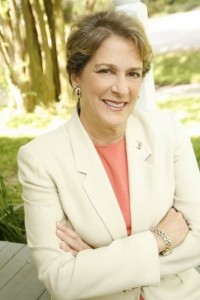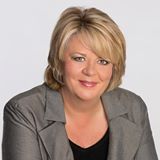The Houston City Council will have its fewest women in 15 years this January, which political observers called a troublesome regression for one of the most diverse cities in the U.S.
Just two women will remain on the 16-member council. And for the first time in about 25 years, a minority woman will not hold a seat.
“It’s more a step back rather than a step forward for the city of Houston,” said Rice University political scientist Mark Jones. “Women represent slightly over 50 percent of population but will account for less than a fifth of the City Council.”
There are currently four women on the council. Except for 1999, when there were also just two, the council has had at least three females in each of the last 25 years. It peaked at eight in 2005, according to data compiled by Rice University political scientist Bob Stein. Also, from 1989 until 1999, there were at least three women on council.
Political analysts say the makeup, likely a result of chance, is not an optimal mix.
[…]
Stein said a persistent finding in social science research shows that a higher proportion of women on governing bodies means less gridlock and more efficiency. He said some believe this is a genetic trait in women and also because women have different experiences than men.
Stein said this election season saw a diverse group of candidates in the mix, including women, but the turnout was extremely low. He predicted it would be a challenging year for Mayor Annise Parker, who is heading into her final term with her sights on statewide office. In part, this will be because women may be more sympathetic to some of her issues, such as discrimination.
Rice University’s Jones said because Parker will be at the helm of city government, the policy impact will not be dramatic, but that the new council makeup could draw attention to the under-representation of women in governing bodies.
He said these election results were due to bad luck and he does not believe there is any broader anti-woman trends in Houston, noting several races where women were contenders. He also pointed out this low representation of women could persist because incumbents have such an advantage in future elections.
I noted this last week. Took about as long as I figured it might for the Chron to write a story about it. As I said at the time, I think it’s a temporary aberration and not indicative of any trends. If the ball bounced a little differently in the first round of At Large #3, we might not be having this conversation at all. Or maybe we’d be talking about another missed opportunity, who knows. Be that as it may, I don’t quite understand the comment about turnout. Turnout this year was roughly the same as it was in 2009, and it was much higher than it was in 2011 or 2007. It’s not clear to me what effect turnout is supposed to have had on the outcomes. It’s not clear to me that a higher level of turnout would have benefited Graci Garces in the runoff – given the margin of victory in District D, I don’t think any level of turnout could have helped Georgia Provost – or one of Jenifer Pool and Rogene Gee Calvert in November. As for the effect on Mayor Parker and her agenda, I look at it this way: Mayor Parker swapped out two troublemakers in CMs Brown and Burks, and got back only one potential troublemaker in CM-elect Kubosh in return. I’m thinking she’ll take that deal.
While I do think the results of this year’s elections are not predictive of future elections, that doesn’t mean that the current makeup of Council should be accepted without any need to do things differently next time.
Cindy Clifford, who runs a Houston-based public relations company, said she plans to start a group to empower promising women in Houston to consider public office and donate to female candidates. She said women have a harder time raising money and asking for things for themselves. She said she hopes to inspire confidence in promising female leaders.
“It’s important for women to have a seat at the table,” she said. “Women see things differently; there will be a different dialogue and discussion.”
Having good candidates run and ensuring they get the support they need is always a fine idea. If you find the lack of women on the new Council troublesome, now is an excellent time to start working on a solution for 2015.



Thank goodness one of those women is Ellen Cohen.
“Males make up almost 50% of the population, yet for the second election cycle in a row, they will not be represented in the office of Mayor.”
When it comes to representation, I don’t care about your sex, your gender, your orientation, your skin color, or anything else you were born with or without. I don’t care about where you were born, what your religion is or isn’t, or whether you hang the toilet paper the right way or with it going under. I care about how you think and act about the issues.
Let me say this, if your a single guy trying to get involved in a relationship with a woman that lives in Houston,its almost 50 50,there are 2000 more women over the population of men in Houston.=however in philladelphia there is 176,000 more women to men.
Joshua ben bullard